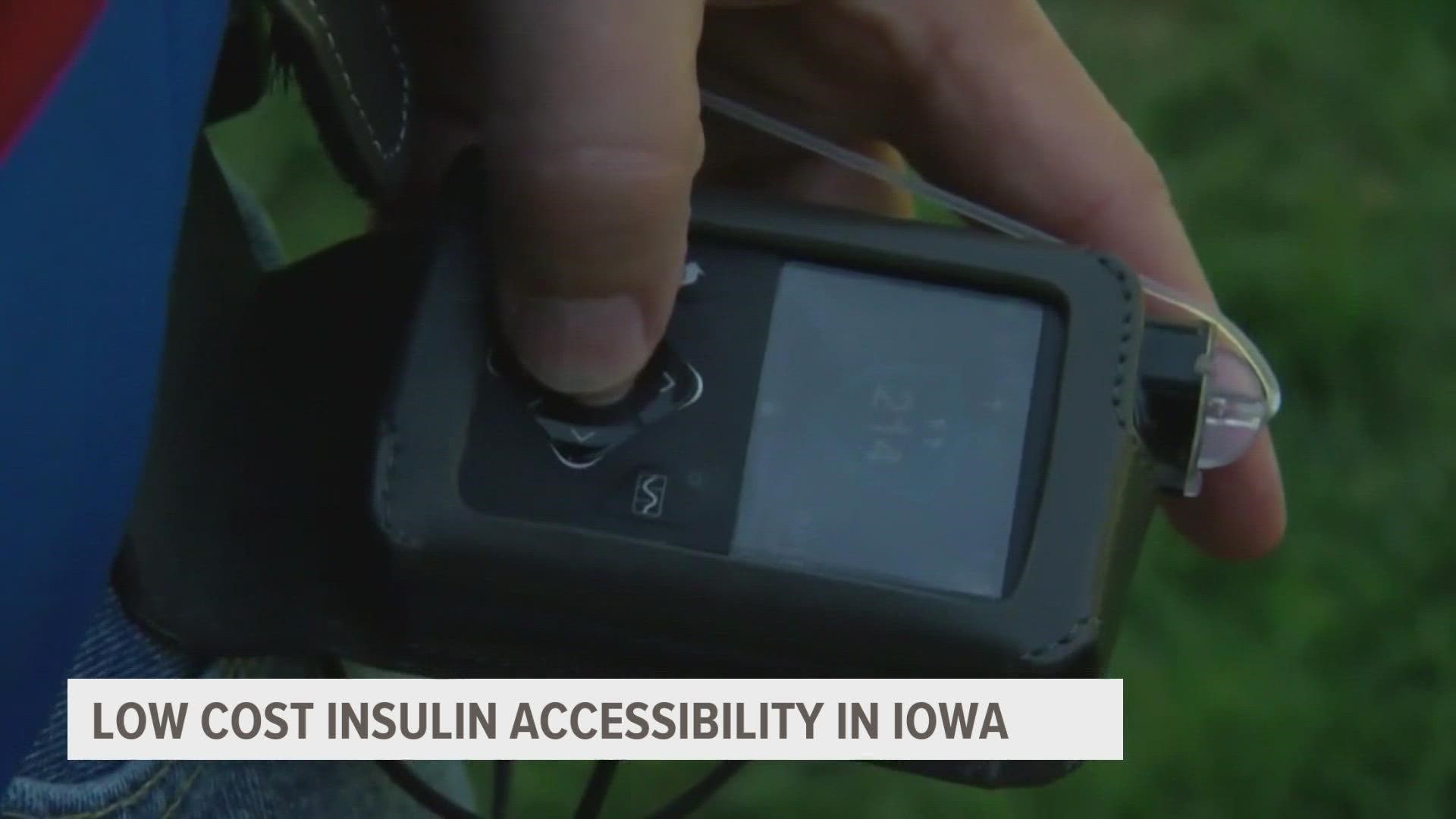DES MOINES, Iowa — This past weekend, Iowa Democrats passed the Inflation Reduction Act through the senate - but one topic didn't make it on the final ticket: capping insulin prices.
A cap on the cost of insulin was debated, but it was blocked by Republicans after the senate parliamentarian said it violated a budget rule.
"Insulin costs have just kept increasing. And I don't know how a lot of people do it, I really don't," said Lala Kosman, a Type 1 diabetic.
She says diabetes is never an easy journey, but with record inflation and an ongoing pandemic, the extra pressures of life can greatly impact people with the disease.
"Those extra stressors, for diabetics, can compound things and stress levels can make their numbers go higher, so then they're needing to use more insulin," Kosman said. "Or people who hadn't been insulin dependent before are getting into situations now where they might need to be on insulin."
RELATED: Yes, U.S. insulin prices are far higher than these other countries, like viral tweets claim
Dr. Anuj Bhargava, a physician at Iowa Diabetes Research Center, says he is disappointed to see that the populations that need the most help with the cost of insulin are oftentimes left out of legislative conversations.
"Uninsured patient have a lot of challenges - how they do doctor visits and then pay for their medication. So we have, for example, here a free clinic," Bhargava said. "So people who are below certain income, they can come to us and we can see them free."
Sen. Chuck Grassley says his vote against the Inflation Reduction Act was not a vote against capping insulin prices.
Though the original call to cap insulin prices was scrapped from the bill, Grassley and fellow senator Joni Ernst looked toward the Kennedy Amendment as a different measure. The amendment aimed to repurpose funding from the CARES Act to offer discounted insulin to lower-income families; Democrats shot it down.
For diabetics across the nation, insulin prices are still up in the air.
Currently, Grassley is working on a new bipartisan bill.
"I can't speak to the technicalities of the Shaheen Collinsville, but that's a bipartisan bill by two women members of the senate. And what they're trying to do is get a bill that can get 60 votes in the United States Senate," he said.
As for Lala Kosman, she is hopeful policy makers can settle on legislation that will help people afford insulin sooner rather than later — she says that some are resorting to deadly practices to savor the insulin they have.
"I've talked to two or three people in the last couple of weeks that are having to ration their insulin," she said. "Like they'll take one dose of mealtime insulin a day rather than three because they can't afford it."
Bhargava says if you are struggling to pay for insulin, it's important to be your own best advocate. Taking part in diabetic research and looking into other resources are some ways he recommends for those who are seeking free care.

